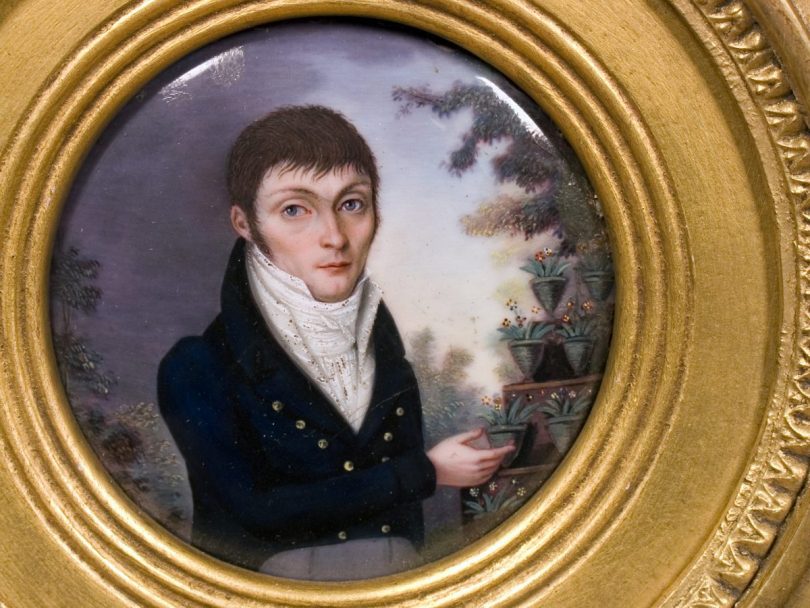
On this day in 1840, 14 years after he left Transylvania and famously cursed the university, noted naturalist Constantine Rafinesque died in Philadelphia. In tribute to the anniversary, we take a look at some of “Raf’s” contributions to science and Transy lore, courtesy of Transylvania’s Special Collections.
- Constantine Samuel Rafinesque was born on October 22, 1783, in Galata, a suburb of Constantinople. His father was a French merchant, and his mother was the daughter of a German merchant family.
- At age 19, Rafinesque became an apprentice in the mercantile house of the Clifford Brothers in Philadelphia. During the next two years, he roamed the woods and fields from Pennsylvania to Virginia, making plant and animal collections and developing a wide correspondence with fellow naturalists.
- Rafinesque returned to Europe in 1805 and spent the next decade in Sicily, where he was secretary to the U.S. consul. During this time his first scientific books were published.
- On his return to the United States in 1815, he was shipwrecked on Long Island Sound, losing all his collections and unpublished manuscripts. He remained in America the rest of his life, becoming a naturalized citizen in 1832.
Two hundred years ago this year, in 1819, Rafinesque arrived in Lexington, at Transylvania University where he had been hired as a professor of botany and natural science.
- Rafinesque’s years at Transylvania, 1819-26, though often troubled by quarrels with colleagues, were among his most productive. He published scientific names, both locally and in Europe, for thousands of plants and hundreds of animals. He became interested also in prehistoric Indian sites — identifying 148 of them in Kentucky alone — and in Indian languages, leading to his preservation of the “Walam Olum,” the epic of the migration of the Delaware Indians.
- At Transylvania he taught botany through the innovation of examining physical specimens and he tried, unsuccessfully, to found a botanical garden in conjunction with the university.
Rafinesque died in Philadelphia in 1840 and was buried in Ronaldson’s Cemetery. Eighty-four years later, friends of Transylvania excavated the gravesite and reinterred the bones thought to be his beneath the steps of Old Morrison. The tomb slab contains the inscription “Honor to whom honor is overdue.”
Among the more recent honors for the botanist: Transylvania’s mascot — affectionately called “Raf” — is a Rafinesque’s big-eared bat. The former professor’s passion for bats is the stuff of legend. John James Audubon described hearing a loud commotion one night while Rafinesque was staying at his cottage. Apparently, some bats had fluttered into Rafinesque’s candlelit room through an open window to feed on moths. Raf attacked the bats with the famous ornithologist’s favorite violin, destroying the instrument in the process.
The university also hosts Raf Week every October, which culminates with students spending Halloween night in Raf’s tomb.

